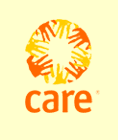Radiology - Technology Information Portal
Thursday, 3 April 2025
'Tomography' p11 Searchterm 'Tomography' found in 6 terms [ • ] and 67 definitions [• ]Result Pages : •
Multi-head contrast media injectors offer flexible contrast media management, simplified workflows and increased patient safety. Contrast delivery is much more controlled and efficient when using a dual-head CT power injector. These medical devices are needed to enable the short imaging times typical of multidetector computed tomography (CT) scanners. Triple-head injectors allow selection of a second contrast agent when two different contrast agents are used, or switching to full contrast agent containers when two identical contrast agents are used. See also Contrast Media Injector, Syringeless CT Power Injector, Single-Head Contrast Media Injector, CT Power Injector. Further Reading: Basics:
News & More:
•
A myelography is a radiographic imaging procedure to visualize the spinal canal, the spinal cord, cerebrospinal fluid (CSF), intervertebral disks and nerve roots. A special contrast agent (dye) is injected through a needle into the subarachnoid space of the spinal canal. A myelogram provides a very detailed picture of the spinal cord and spinal column. A fluoroscopy displays the bones and the fluid-filled space of the spine also in motion. An additional computerized tomography (CT or CAT) scan helps to differentiate the spinal conditions better. The indications include disc herniation, spinal stenosis, tumor, and vertebral fracture. See also Myeloscintigraphy, Fluoroscopic System, Hounsfield Unit, Bone Densitometry, Nonionic Contrast Agents. •
N1177 is the codename for a nanoparticulate contrast agent under development. N1177 is tested to improve the clinical utility of computed tomography (CT) to diagnose cardiovascular diseases and cancers. N1177 is water insoluble, has an iodine concentration of 67 mg/mL and interacts with activated macrophages. The provider is Nanoscan Imaging, Lansdale, PA.
•
Omnipaque is a low-osmolar, nonionic, contrast medium with a broad range of indications, for example intravascular diagnostic procedures such as coronary angiography, spinal cord imaging, and body cavity procedures including shoulder and knee joints. Omnipaque is approved for use in adults and children, and is available in a wide variety of packagings. See also Nonionic Contrast Agents.
Drug Information and Specification
NAME OF COMPOUND
Iohexol
DEVELOPER
INDICATION
Brain and body computed tomography, urography, angiography
APPLICATION
Intravascular
PHARMACOKINETIC
Renal excretion
CHEMICAL BOND
520, 672, 844 mosm/kgH2O
IODINE CONCENTRATION
240, 300 or 350 mg iodine
50 to 250 mL depending on concentration and examination
PREPARATION
Ready-to-use product
STORAGE
Store below 30°Celsius (86°Fahrenheit)
PRESENTATION
50, 75, 100, 125, 150, 200 or 250mL bottle or +PLUSPAK (polymer bottle)
DO NOT RELY ON THE INFORMATION PROVIDED HERE, THEY ARE NOT A SUBSTITUTE FOR THE ACCOMPANYING
PACKAGE INSERT!
•
Omnipaque (iohexol) is a nonionic, low-osmolar contrast agent and is also available for oral use, offering gastrointestinal (GI) visualization with minimal side effects. Omnipaque has a neutral taste that even kids will drink. Orally administered iohexol is poorly absorbed from the normal gastrointestinal tract. Omnipaque is well tolerated and absorbed if leakage into the peritoneal cavity occurs. The recommended dosage of undiluted Omnipaque (at a concentration of for example 350 mg/mL) for computed tomography of the abdomen in adults is 500 mL to 1000 mL, diluted to concentrations of 6 mg/mL to 9 mg/mL. The oral dose should be administered about 20 to 40 minutes prior to the CT scan.
Drug Information and Specification
NAME OF COMPOUND
Iohexol
MANUFACTURER
INDICATION
Bowel opacification
APPLICATION
Oral, rectal
CONCENTRATION
140, 240, 300 or 350 mg iodine
500 - 1000 mL of diluted solution
PREPARATION
Ready-to-use product, dilutable
STORAGE
Protect vials and glass or polymer bottles from strong daylight and direct exposure to
sunlight. Do not freeze. Storage at controlled room temperature, 20°-25°C (68°- 77°F);
PRESENTATION
50, 75, 100, 125, 150, 200 or 250mL bottle or +PLUSPAK (polymer bottle)
DO NOT RELY ON THE INFORMATION PROVIDED HERE, THEY ARE NOT A SUBSTITUTE FOR THE ACCOMPANYING
PACKAGE INSERT!
Result Pages : |
Radiology - Technology Information Portal
Member of SoftWays' Medical Imaging Group - MR-TIP • Radiology-TIP • Medical-Ultrasound-Imaging
Copyright © 2008 - 2025 SoftWays. All rights reserved.
Terms of Use | Privacy Policy | Advertising
Member of SoftWays' Medical Imaging Group - MR-TIP • Radiology-TIP • Medical-Ultrasound-Imaging
Copyright © 2008 - 2025 SoftWays. All rights reserved.
Terms of Use | Privacy Policy | Advertising
[last update: 2023-11-06 02:01:00]





